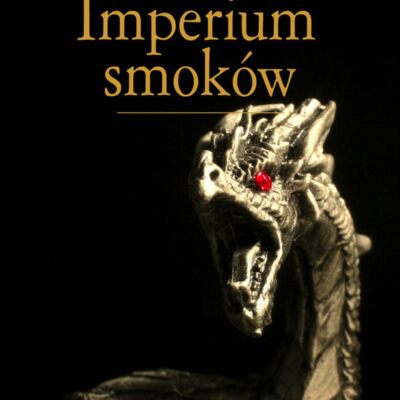Roman Empire had almost nothing to do with ancient Han China. The surviving historical testimonies tell us only about one Roman legation, which in 166 CE reached the court of the Emperor of China. In earlier years, the Chinese side also tried to make contact with its Western counterpart. They failed, however, because the land road that separated the two powers of the local world was strewn with too many obstacles that were difficult to overcome. The then Romans and Chinese knew about each other’s existence, although the mutual knowledge they had about each other was very fragmentary and often based on fabrications, which is typical for areas that are in contact with each other through many intermediaries, located, for example, along the so-called “silk route”. It was thanks to these “intermediaries” who were on the long and bumpy road between the Roman state and China that in 53 BCE to the incident, known more widely as the Battle of Carrhae, in which at the hands of the Hellenized Parthians, the famous conqueror of the rebel Spartacus, Crassus suffers an ignominious defeat and “lends”, of course involuntarily, his head as a “proper” for the performance of Euripides’ Bacchae, staged for the victorious king of the proud Parthians. Roman soldiers who survived the defeat of their army, unlike their commander, lived on. They were, as Parthian prisoners, sent to hard labor on the eastern frontiers of the huge empire of Indo-Iranian warriors, which bordered on a not very friendly state, ruled by the then still proud Han dynasty. As indirect evidence shows, some Roman prisoners got through, were taken over or joined the Chinese warring with the Parthians and started a new life among them, leaving some traces.
The Italian writer Valerio Massimo Manfredi decided to tell us about the possible further fate of the distant descendants of these Romans, whose novel entitled “Empire of Dragons” begins only in 260 CE, i.e. after the fall of the Parthian state, which was replaced by a strong kingdom ruled by the indigenous Persian Sassanid dynasty. The main characters of the novel are imprisoned by Emperor Valerian in Persia and the whirlwind of events carries them east to China at the time of the fall of the Han dynasty, when it was far from political unity. In the discussed period with the Roman Empire, it was also not the best in this respect, which is actually an interesting convergence.
So much for the content itself. I must say that Mr. Manfredi is a writer who writes good historical novels from the antiquity period. It was the same this time, with the only proviso that in the part in which the action of the discussed book takes place in China, we are dealing with a greater dose of fantasy on the part of the author. There is a noticeable lack of the author’s iron confidence, typical of his texts on the subject of the ancient history of the Mediterranean world, which in the case of China plunged into crisis is supplemented by the author’s imagination, dressed in fantastic elements.
Nevertheless, I think “Empire of Dragons” by Mr. Manfredi is worth reading.


